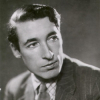Louis MacNeice

Louis MacNeice
Frederick Louis MacNeice CBEwas an Irish poet and playwright. He was part of the generation of the Auden Group, also sometimes known as the "Thirties poets", that included W. H. Auden, Stephen Spender and Cecil Day-Lewis, nicknamed collectively "MacSpaunday" – a term coined by Roy Campbell, in his Talking Bronco. MacNeice's body of work was widely appreciated by the public during his lifetime, due in part to his relaxed, but socially and emotionally aware style. Never as overtlypolitical as some...
NationalityBritish
ProfessionPoet
Date of Birth12 September 1907
The poet is primarily a spokesman, making statements or incantations on behalf of himself or others - usually for both, for it is difficult to speak for oneself without speaking for others or to speak for others without speaking for oneself.
The poet is a specialist in something which everyone practises. Herein, poetry differs from the other arts. Everyone does not practise music or painting or even dancing, but everyone without exception puts together words poetically every day of his life.
Everyone is not able, or inclined, to write poetry in the narrower sense any more than everyone is qualified to take part in a walking race. But just as all of us can and do walk, so all of us can and do use language poetically.
Dublin was hardly worried by the war; her old preoccupations were still preoccupations. The intelligentsia continued their parties; their mutual malice was as effervescent as ever.
Democracy - or any improvement on it - will rest on the layman's right to criticize. His criticism will be often - very often - damn silly, but if, like Plato and the Fascists, we take away his right to criticize, we take away his right to appreciate.
All the arts, to varying degrees, involve some kind of a compromise. This being so, how far need the radio dramatist go to meet the public without losing sight of himself and his own standards of value?
My sympathies are Left. On paper and in the soul. But not in my heart or my guts.
I have just finished my novel (rough draft). It is to be called 'Anacoluthon.' This will make the public think it is an historical romance.
I do not envy any animal, though I envy many of their capacities.
I am more proud of what distinguishes man from the animals than of what he has in common with them.
I am 33 years old, and what can I have been doing that I still am in a muddle? But everyone else is, too; maybe our muddles are concurrent.
Man is an unhappy animal and one that can talk. If he was not unhappy, he would have nothing to talk about. But if he had nothing to talk about, he would be unhappy.
In writing 'A Portrait of Athens' I have attempted - rather impressionistically - to give a panorama of its present. But I have also brought in its past because I sincerely think that there is a continuity.
It is a retrogression when human beings begin to insist on uniform, on one-mindedness, on conditioning their offspring so that all their reactions are automatic.